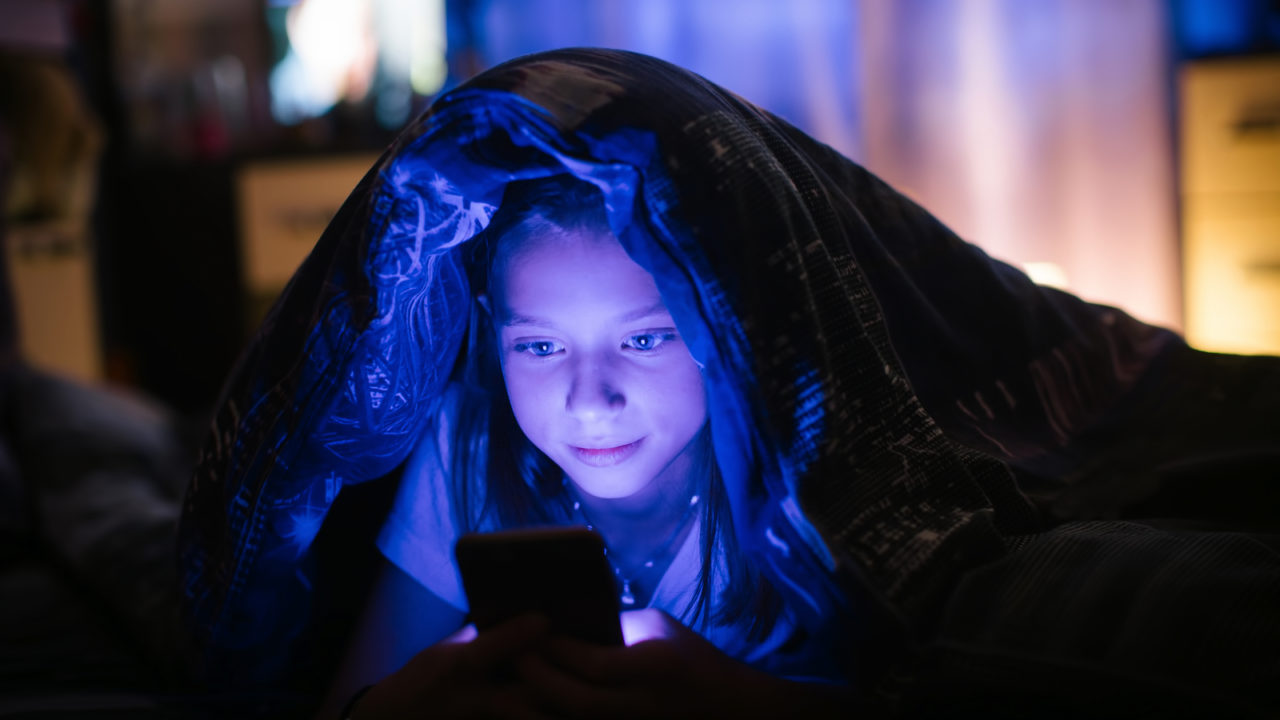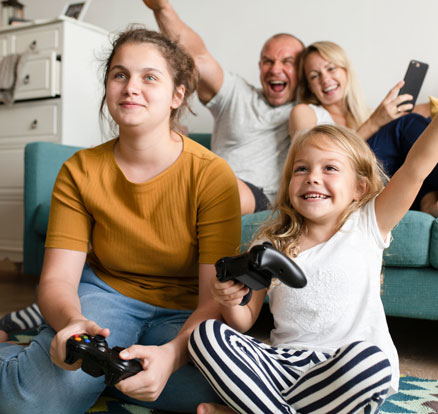
Advice on screen-use and sleep
Unregulated mobile use and gaming can come at the expense of nighttime sleep. What you can do to provide children with a routine to improve their circadian rhythm (the natural, internal process of the body that regulates the sleep-wake cycle).
Choose language in the Google-box below. Some translations may be flawed or inaccurate.
– With good enough quality of sleep, children will be able to handle their everyday life better, says Mari Hysing who researches children and sleep at the University of Bergen in Norway.
– If the children get enough sleep, it will have a positive impact on learning. It is also observed that it is important concerning children’s ability to meet and deal with challenges. Sleep is thus positive for the best possible everyday functioning. At the same time, it is quite common to have a bad night sometimes and no disaster at all. But in general, it is important to prioritize getting enough sleep to have the best possible everyday life, says Hysing.

The exact number of hours and need for sleep varies somewhat from child to child, Hysing emphasizes. At the same time, she points out that the need for sleep at a small age is often stable throughout life. If you need a lot of sleep as a toddler, you will probably need a lot of sleep as an adult as well.
Those who need ‘only’ five hours of sleep each night are therefore the exceptions in the wider context. Beyond that, Hysing refers to the advice of the American Paediatric Association that proposes:
- 4-12 months: 12-16 hours of sleep (including rest breaks)
- 1-2 years of age: 11-14 hours of sleep (including rest breaks)
- 3-5 years of age: 10-13 hours of sleep (including rest breaks)
- 6-12 years of age: 9-12 hours of sleep
- 13-18 years of age: 8-10 hours of sleep
Do our children sleep enough?
Group level studies indicate that many people do not get enough sleep, and this is especially true in adolescence, says Hysing.
– We cannot blame it on screen-use alone. It is clear that screen use is a big part of children’s and adolescents’ lives and can be a contributing factor. But there may be several reasons why children do not get enough sleep, Hysing says.
It is a well-known fact that the blue light from the screen can keep the body awake in general. At the same time, Hysing points out that it is important to pay attention to all lighting conditions to which the body is exposed.
– There is something that indicates that blue screen-light affects more than any other form of light. However, the circadian rhythm is controlled by all forms of light, including daylight. All this affects hormone regulation, and therefore it may be wise to think about daylight conditions that help us to wake up, as well as a dim light in the evening before it is time to sleep, according to Hysing.
Exciting games keep kids awake
Other than the light, screen-use has also some other aspects that parents should be aware of, Hysing points out.
– Watching Netflix or playing a game physiologically activates us and keeps our attention. It takes so little of us to sit with a movie or a game, and you can sit with it for a long time. If you’re doing this beyond the hours of the night, you are not sleeping, it’s that simple. Therefore, it is important that parents help children who are unable to regulate this themselves. It’s very hard for children to control something that can be very appealing. Eventually, you learn to prioritize and understand that sometimes you have to put away something even though it is fun to be there, and rather go to bed to get enough sleep to handle the next day, says Hysing.
Challenges that arise on social media can also cause some children to lie awake after checking a message or comment that has made them worried, for example.
– There may be an indirect reason why someone keeps pondering even after the screen is turned off and he/she has gone to bed. Besides, there may be some who are afraid of missing out. That it is difficult to turn off for the day because the rest of the class will still be logged in for another hour. Perhaps it’ll be desirable to talk to other parents and get a common agreement to avoid it, Hysing suggests.
How to ensure that the children get the best possible sleep?
Good advice must be realistic and adaptable to the family. According to Hysing, there is no quick fix or quick advice to help all families. She encourages parents to think long-term when designing bedtime guidelines.
Should you consider leaving your phone in a different room than the bedroom, for example?
– For some children, it works well to have a TV and mobile in the room when the children are very young and then become difficult during adolescence. And it’s harder to take away a good or service once they have become accustomed to it. Here you have to think long-term, Hysing points out.
When the children are young, parents can set the limits, but as the children grow up, they should also be allowed to help shape the rules.
– In addition, it is a good idea to be aware of turning off the devices before bedtime. For the youngest, one can say that the screen can be put away an hour before going to sleep. At the same time, this may not be as appropriate as the children grow up and you have to make joint agreements, which they can keep over time. Maybe someone comes home from football practice an hour before bedtime and is going to check their phone for example. The most important thing is to have a conscious relationship to keep away from the devices before bedtime and also dampen the lighting conditions of the screen, says Hysing.
Fixed bedtimes improve sleep quality
The feeling of fatigue that strikes in the evening is controlled, among other things, by hormones. In addition to being dark and calm in the evening, the body thrives on regular laying routines.
– If you go to bed and get up at the same time every day, biology will help you sleep well. The same goes for being physically active and getting enough daylight. There is no problem if the children change their routines on weekends and holidays. It would be absurd to force them to get up at 6:30 every day during the summer holidays, for example. But ‘transition’ is a keyword here, and it’s a good idea to adjust back the sleep and wake-up time before the kids start school again. According to Hysing, there are several teachers who report tired and unwell children just after holidays and on Mondays after the weekend.
And when will you be alarmed?
– If you notice that the children are struggling during the day and it affects their mood or learning at school, it can be a starting point for seeking help. Then one must remember that changing sleep habits can be an extensive process. Therefore, it is best to introduce one thing at a time, for example, the children will wake up at a fixed time. It is generally seen that families who have good routines in other areas often also have a good bedtime routine for the children. Having regular meals and routines for screen-use can, for example, be positive for sleep patterns, Hysing concludes.
In summary – advice on screen–use and sleep
- Children should get up and go to bed at specified times
- Before the end of the holiday, there should be a transition to daily sleeping routines again
- Create calm and reduced exposure to light (both screen and daylight) before the children go to bed
- Consider whether your child should have a mobile, TV, and other screens in the room or not
- Plan ahead. It’s harder to withdraw benefits than to say no in the first place.
- Be active enough! Physical activity and daylight can help give children a better circadian rhythm
- Talk to other parents. It’s hard to log out of a game or social media if all your friends are still there
- Be aware of the worries that may arise in your child’s life as a result of things happening on social media/games
- Let your children help shape rules as they get older
(Written on 17 June 2021. Translated from Norwegian to English by Ratan.)










